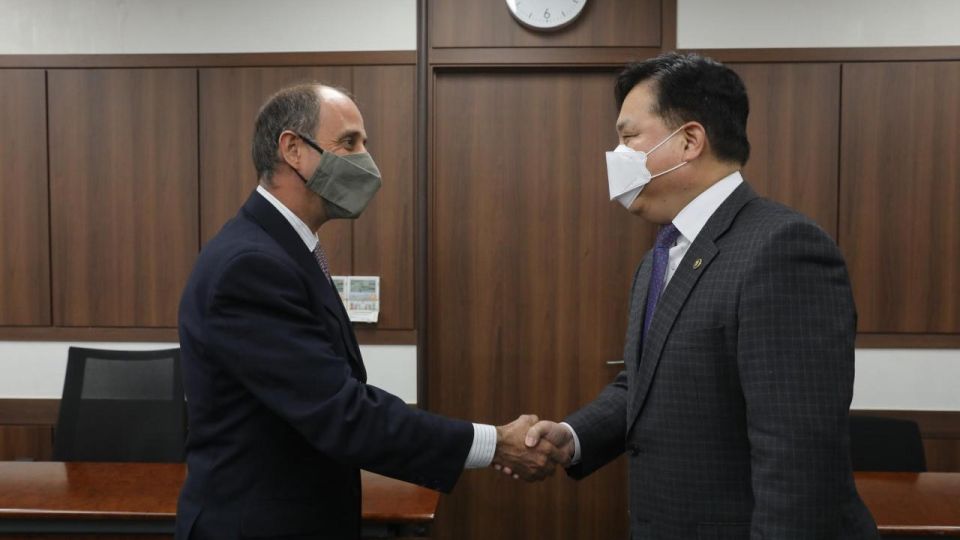February 17, 2022
SEOUL – Tomas Ojea Quintana, the UN special rapporteur on North Korea’s human rights situation, met with senior officials in Seoul on Wednesday and discussed human rights concerns in the reclusive nation.
Quintana arrived here on Tuesday for a nine-day stay, during which he will meet South Korean government officials, lawmakers as well as civic groups and North Korean defectors.
The purpose of his visit is to collect data necessary for writing a report on the findings of right abuses in the North and relevant recommendations, which will be submitted to the UN Human Rights Council and General Assembly in March.
The North has not granted Quintana’s visit to the country, despite repeated requests, according to the UN Human Rights office.
He met with Vice Unification Minister Choi Young-jun in the morning, followed by a working-level talks with the ministry’s director in charge of North Korea’s human rights assistance.
During Quintana’s meeting with Choi, the two sides discussed pending humanitarian issues, including the reunion of the families separated by the 1950-53 Korean War, the Unification Ministry said.
“The efforts to improve inter-Korean relations and establish peace on the Korean Peninsula should progress hand in hand based on the international community’s efforts to actually promote North Koreans’ human rights,” Choi was quoted as saying during their meeting.
In the afternoon, he met with Second Vice Foreign Minister Choi Jong-moon to discuss efforts and ways to cooperate in order to improve North Korea’s human rights.
On Thursday, Quintana is also slated to meet with the elder brother of a South Korean official killed by North Korean soldiers after drifting across the inter-Korean sea border in 2020, and the family member of a victim who was in a plane hijacked by North Korea in 1969.
It marks Quintana’s seventh visit here since his appointment by the UN Human Rights Council in March 2016, with his last trip to Seoul in June 2019. This visit is expected to be his last before his term ends in August.
The special rapporteur on the situation of human rights in the North was established by the UN Commission on Human Rights in 2004, which is tasked to investigate and report on the situation of human rights in the country and on the government’s compliance obligations under international human rights law.
In his last report released in October, Quintana expressed concerns that prolonged and strict COVID-19 measures in the country have resulted in “severe economic hardship and increased vulnerability to human rights violations amongst the general population.”
“People’s access to food is a serious concern and the most vulnerable children and elderly are at risk of starvation,” he said.
The UN investigator also called for the need to ease the UN Security Council sanctions on the North, “that negatively affect humanitarian assistance and human rights.”
Quintana has also been vocal about the South Korean government’s activities and legislation in regard to the North. He criticized Seoul’s new law that bans sending anti-Pyongyang leaflets across the border by activists, as an infringement on the right to freedom of expression. He has also raised concerns on the South Korean government inspecting North Korean defector-led groups in the country.


